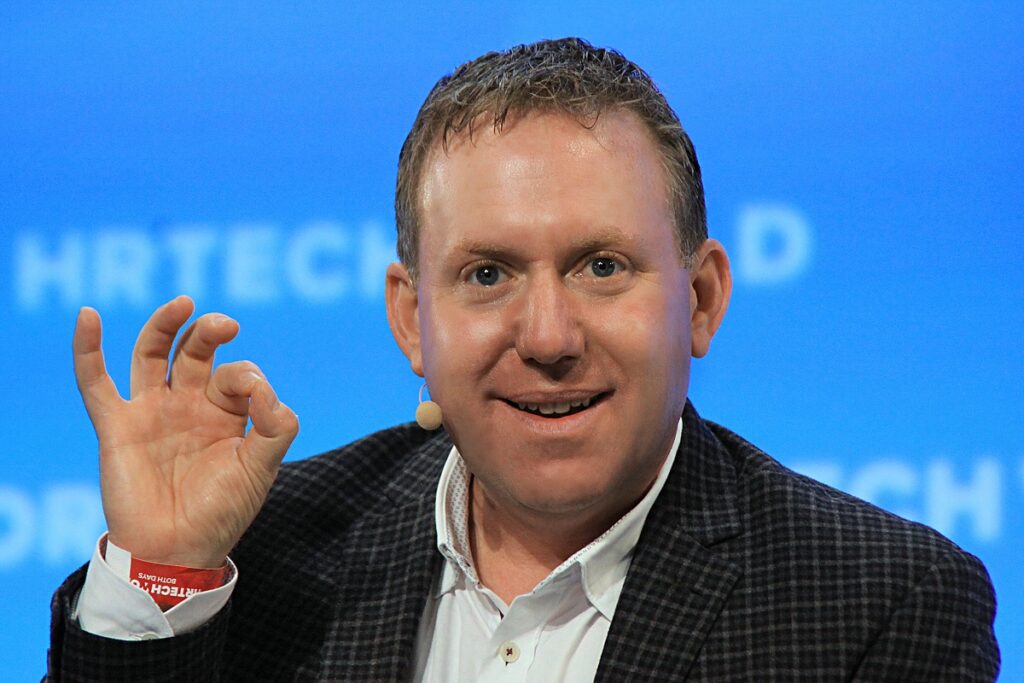Ahead of HR Tech World Amsterdam, taking place on 24-25 October 2017, we spoke with MC and CEO of Leapgen Jason Averbook about how organisations can better drive adoption of HR technology and prepare for what the digital future holds. Find out more and buy your tickets here for HR Tech World Amsterdam – one of the fastest growing HR shows in the world.
Jamie Lawrence, Managing Editor, HRZone: Where do you think organisations are most missing out on driving real value through people?
Jason Averbook, MC, HR Tech World: Today, most organizations do a terrible job at knowing their most important asset, their workforce.
While they have put in place transactional systems to help HR process payroll – they have done a very poor job of understanding the strengths of their workforce, the career goals and aspirations of their workforce and finally, how to measure and assess the workforce.
While talent management processes and technologies have been running rampant for the last decade, they have done little to truly give the business true insight and prescriptive abilities to use their workforce in the right way.
We are entering an era where personalization of content, intelligence and intelligence will help organizations not only understand the workforce but truly deliver content and metrics to help the managers leverage their and enterprise talent in the right ways and the right times.
Jamie Lawrence, Managing Editor, HRZone: What are your ‘trade secrets’ for organisations looking to drive adoption? What do many organisations fail to do?
Jason Averbook, MC, HR Tech World: Most organizations fail to drive adoption because of their inability to design their processes and therefore solutions around the employees and managers and instead, design for the HR department.
If we expect to gain adoption from the workforce and business; our processes, our outcomes and our marketing and communication messages must be tied into the value the workforce will gain from partaking in processes and tools and not stress only the value to HR.
Another reason adoption is so hard in organizations is how the workforce accesses these tools. If tools are buried in a “link farm” called a intranet instead of a truly personalized, frictionless workforce experience, you already have a huge strike against you in trying to gain adoption.
The goal should be to move from adoption to addiction; as solely signing into a solution and using it once is not the goal, the goal should be ongoing usage and benefit to the workforce.
Jamie Lawrence, Managing Editor, HRZone: We’ve got a human v digital thing going on at the moment. It doesn’t feel like something to be ‘solved.’ What do you think?
Jason Averbook, MC, HR Tech World: It is not something to be solved but something to be studied by each organization. We live in a world where “high-touch” does not necessarily mean “human touch” anymore.
There are many parts of the workforce that would prefer high-touch being digital versus human. The way we are serviced as consumers is driving much of our expectation at work. Whether we are raised as digital natives or digital immigrants also is a key driver of how we are used to being serviced.
It is an important exercise for all organizations going forward to understand the “signature” of their workforce and design human and digital processes according to what will work in their organization.
Jamie Lawrence, Managing Editor, HRZone: Why are you optimistic about the future of work? Why are you pessimistic?
Jason Averbook, MC, HR Tech World: I am very optimistic about the future of work as key principles such as digitization, agile, continuous innovation and mobility are key parts of the expectations of the workforce today.
Organizations today are no longer as fragile as those of the past and can bend to whatever the economy and ever-changing world we live in throws at us.
I am pessimistic because many organizations are not thinking holistically about what it takes to survive in today’s world and still think in silos.
This is especially true in the HR function as organizations still do not share data, processes and strategies when they have a single goal which is preparing the workforce for the future of work. We must break silos as soon as possible and realize that is not how people work or interact in today’s world.
Jamie Lawrence, Managing Editor, HRZone: You’ve been going to HR Tech World for a few years now. What are you most excited about this time around?
Jason Averbook, MC, HR Tech World: HR Tech World is the leading networking, collaboration and ideation event for HR innovation in the world. Each time I am at the event I get the perfect blend of what knowledge truly is; contextual, conceptual, continuous and compelling.
When you combine these 4 ‘Cs’ into an explosive two-day event; you leave inspired, focused and ready to take action. I am excited to see all of the new innovations around artificial intelligence, bots, and other shiny objects as organizations are ready more than ever for delivery tools and solutions that the workforce gets in their consumerized lives and expect now at work. Let’s go!






